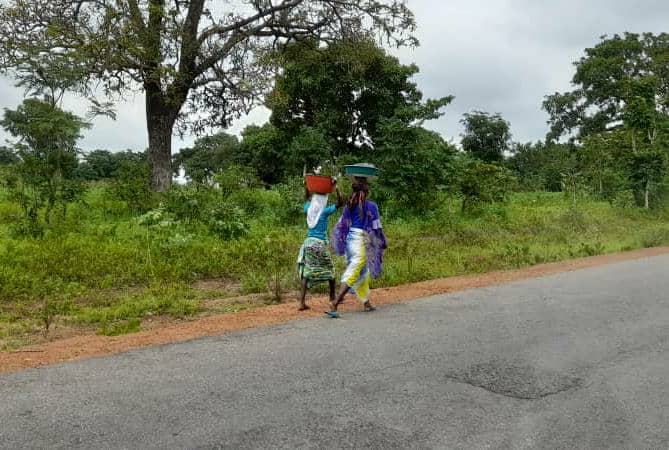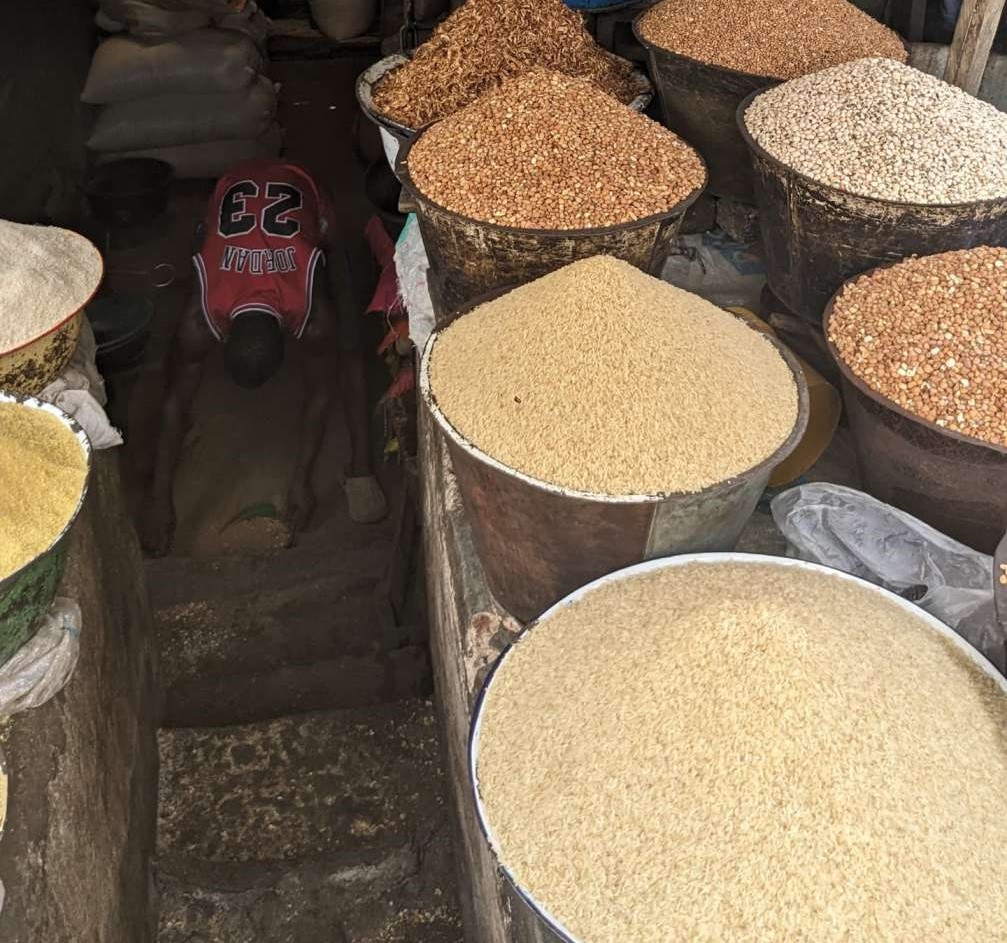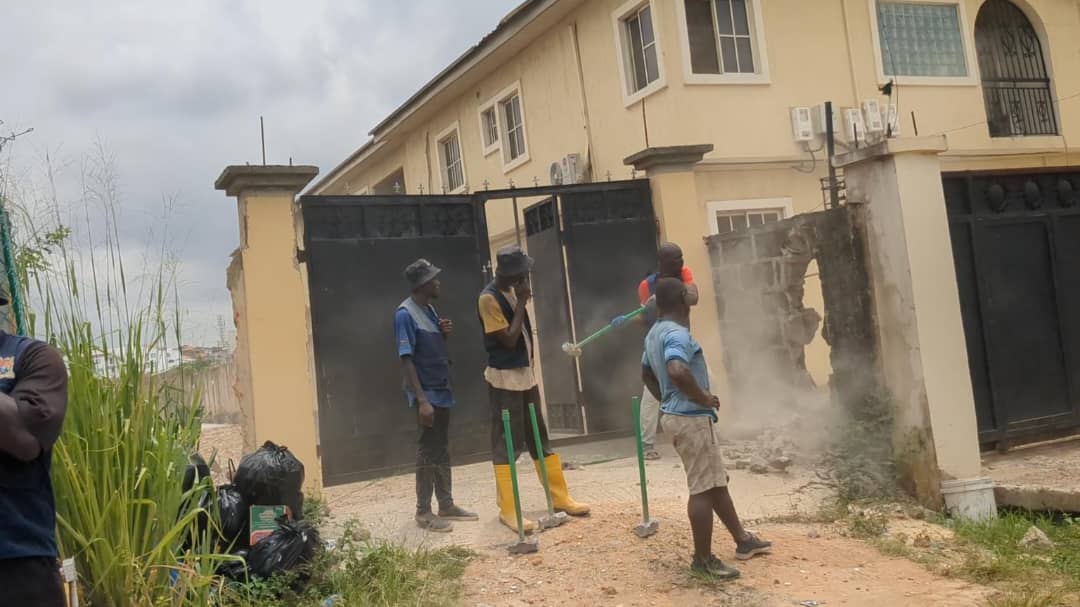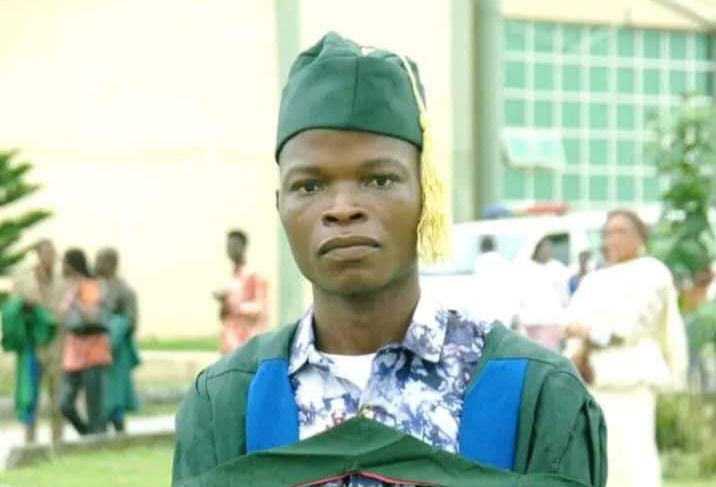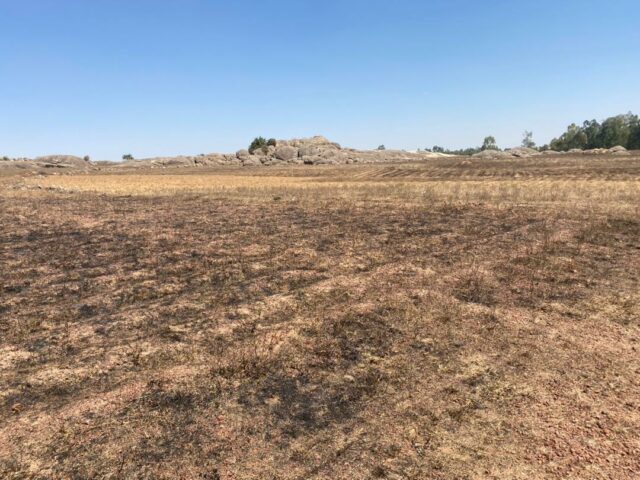Parts of Oyo State, one of Nigeria’s six southwestern states, are dominated by farmers and herders. They are a mix of Yoruba and Fulani natives from very poor backgrounds. Inside these communities, girl-children of some of the Fulani lack access to good education, and are often discouraged from pursuing it. Investigative journalist DANIEL OJUKWU tells their stories, and uncovers why this is a widely accepted norm.
FIJ arrived Nomadic Primary School in Ago Are, Atisbo Local Government Area, Oyo State, on Tuesday, August 2, 2022.
Prior to visiting Ago Are, our reporter was already familiar with the state of the community. He had learned that dwellers in these parts had struggled to embrace education in recent years, and that it was largely due to their cultures, orientation and religious leanings.
Ago Are is situated in the northern part of Oyo State, and its residents speak two major languages: Yoruba and Fulfulde. The Yoruba Language is native to traditional Yoruba people, while Fulfulde is spoken by the Fulani. In this community however, the Fulani speak both.
But what does the culture of these people have to do with the education of their children? How does it affect the state of the community and their relationship with the public school?
In the course of FIJ’s investigation into the state of the girl-child education in this community, we would come to encounter cows, child-herders, an imam who underplays education, teenage wives, and some unintelligible responses to simple queries.
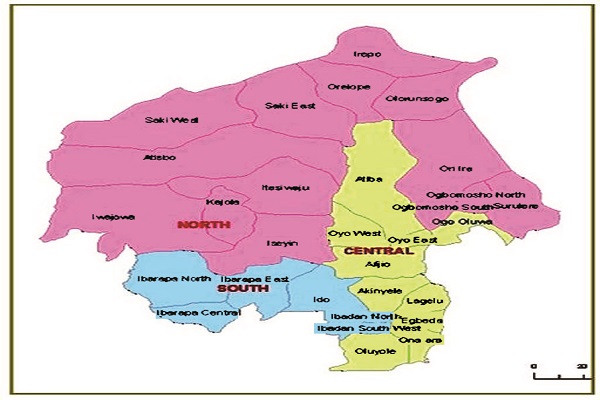
Upon arrival, our reporter observed the community was largely dominated by the Fulani. There were no glamorous houses, banks, or even significant commercial activities. It was the textbook rural settlement, inhabited by low-income earners, farmers and herders.
Our reporter met children strolling along dusty paths leading to their houses, and their parents preparing for a day on the farm. This was routine for them.
Hours later, our reporter was at the primary school to probe why school was in session but girls were milking cows and hawking while boys were herding cows.
THE PEOPLE DO NOT BELIEVE IN SENDING THEIR GIRLS TO SCHOOL — HEADMISTRESS
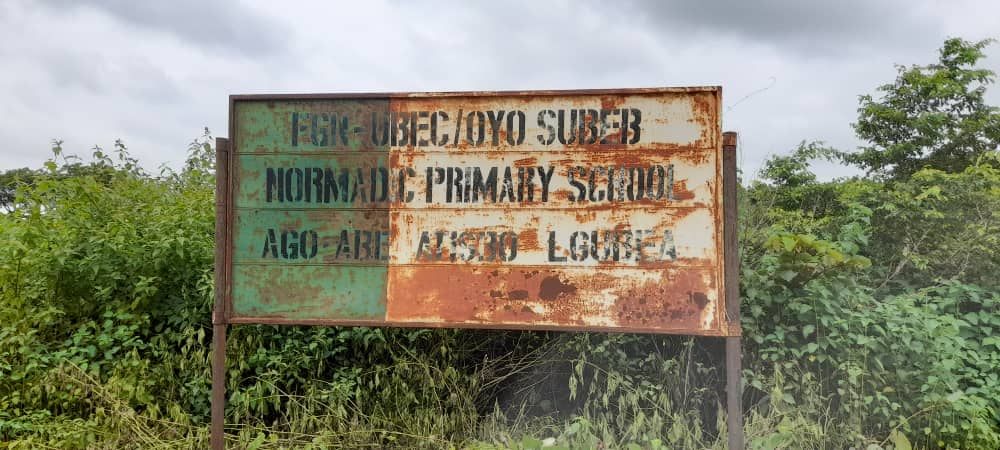
When FIJ spoke with Ogundiran R. B., the headmistress of Nomadic Primary School, Ago Aro, she told our reporter that despite the introduction of nomadic schools, the Fulani were not enrolling their children.
She said she had experienced instances where parents enrolled their wards but withdrew them either because they didn’t believe in educating girls, they needed them to help with chores or because the government was not feeding them.
According to her, pupils go to the school “whenever they want, and would always come late”.
On the day FIJ visited the school, many of the female pupils were absent, as they had followed their mothers to groundnut farms earlier.
Speaking with our reporter in her native Yoruba Language, Ogundinran said, “They attend once in a while, but the frequency with which they attend school is improving.
“The free meal the government brings, they come because of it. Once the free meal stops, the pupils will stop coming too.
“When the free meal programme was introduced, they grew interest in attending school. So, the ones we did not see, who did not attend, we went to their houses to counsel their parents, because the parents are the real problems.
“They (the parents) believe that once they have a girl child, they should be home assisting them with chores. We try to counsel them, and by doing that, there have been improvements.
“The men believe that their first sons must herd cattle, and we have been trying to orientate them, to explain that it is not a good decision.
“The girls who do not come to school, when we get to their houses, we would meet them cooking. After going to the stream, they would also go to the farm to harvest cassava.
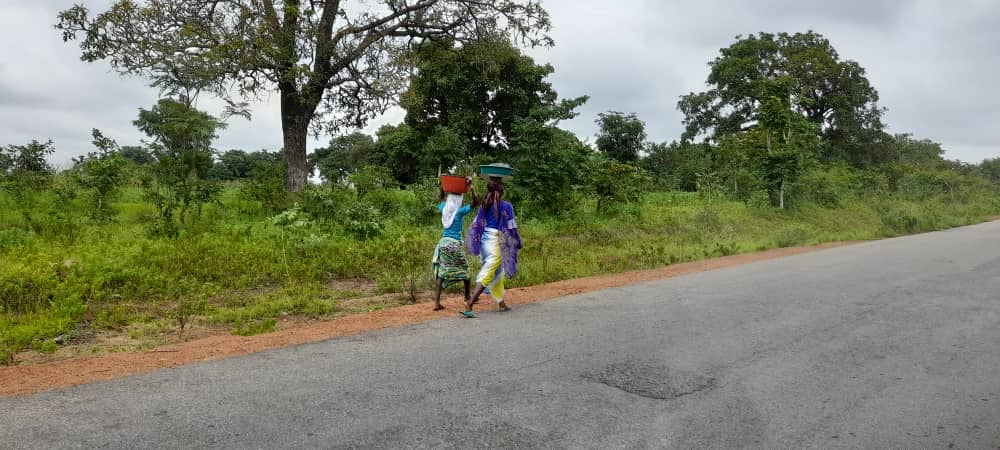
“The elderly ones would also go to harvest cassava. They will also go and fetch firewood to carry to town for sale.”
When our reporter asked if the residents had complained about the structures of the schools, and if they would rather have classes in the evenings, Ogundinran said there had never been complaints about the way the school and other similar ones were structured.
She said, “They have never said anything about not liking a day school or preferring evening classes to morning classes.
“They also do not stay away from school because of religion. This is because they have their Islamic centres, where they learn Arabic and Islamic knowledge.”
The last statement she made was a deviation from what our reporter had gathered from other sources. According to these sources, the dwellers were consuming sermons that preached against formal ‘western education’.
What FIJ did afterwards was visit one of these Islamic centres.
ISLAMIC EDUCATION IS BETTER THAN WESTERN EDUCATION — MUSLIM CLERIC
At about 5am on Wednesday, August 3, in the company of Sobir Alowesin, a fixer, FIJ visited a mosque in the community.
This mosque was headed by Abdulfatah Alamu, a turbaned imam of the community mosque.
Minutes into the sermon, some of Alamu’s words began to contradict what Ogundinran had told our reporter.
Addressing Muslim faithfuls in his native Yoruba Language, Alamu preached against western education to his members.
He emphasized greater importance for Islamic education, and said an academic degree would be “useless” after one’s death, but Islamic education could be passed down to one’s generation.
He also admonished his members to invest in the “house of God than in an academic degree which cannot take one to heaven”.
His teachings, captured by FIJ, contained these words;
Let’s seek knowledge for things we are oblivious to. If we are hungry, we won’t be shy of it, we would rather ask for food.
If a man learns a job and he doesn’t succeed at it, he would look elsewhere for a solution.
Some people would say the best time to go to school is while one is young, but he or she can only attend twice in a week. He will go on Saturdays and Sundays. This is because he/she will have to fend for his family.
After one goes to school, earns their degree, becomes a professor or lawyer and achieves all there is in academics, once the person dies, everything ends. His children can’t use them. All his academic achievements are useless to his children.
Now, if a person gets Islamic knowledge, when he dies, it becomes beneficial to him and everyone else.
The academic knowledge you are gaining is of no use. But then when you gain Islamic knowledge, thousands of people will benefit from it. All the books people pile up are of no use to others when they die.
I was in awe of God when, one day, they said there was a man who struggled through life, he wanted to be a professor. He tried and God helped him. The day he was supposed to become a professor, he got home that night and died.
Imagine all he spent. If he had gathered all the money he spent and devoted it to the work or service of God, it would have been very beneficial to him. But then, all he spent on being a professor was worthless; it gave him no value.
If he was a believer, that is what he would have to discuss with God, but if he wasn’t, he had missed out on earth and in paradise. May the Prophet not allow us short-change ourselves.
Don’t say you are too old to attend a quranic school; even elderly people attend these schools. And they ask for counsel when and where appropriate.
FIJ made efforts to reach this imam for explanations on why he chose to discourage his members from obtaining formal education, but he did not grant us audience.
EDUCATION IS GOOD BUT WE DON’T BELIEVE IN THE QUALITY, KAJOLA LGA RESIDENTS TELL FIJ
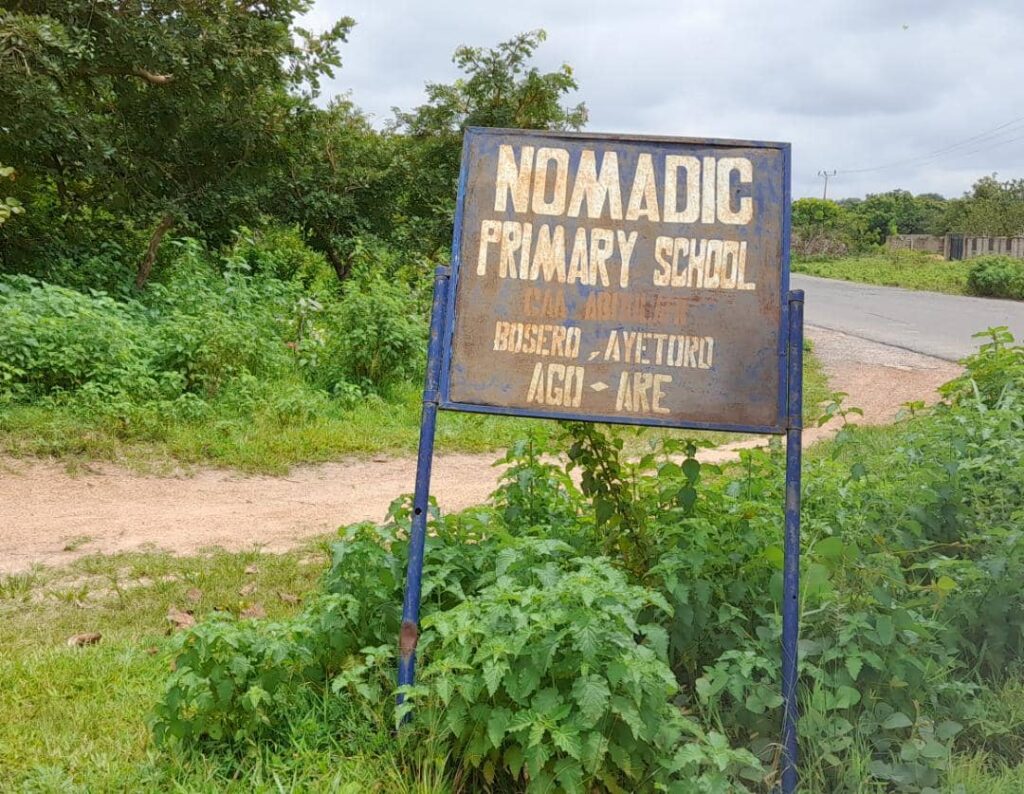
Abdulahi Alimu is the chairman of the Parents, Teachers Association (PTA) in Nomadic Primary School, Bosero-Ayetoro in Kajola LGA, another LGA in Oyo north.
He is not educated, and told FIJ he never got basic education. According to him, any Fulani who committed to gaining education would be educated, but not many around him had successfully pursued formal education.
He said the schools were not faulty; the people just did not believe enough in it.

After telling our reporter that he couldn’t tell his age as a result of his lack of education, he added, “I can’t speak English because I did not go to school.”
Asked about the reason girl children were not getting much of education in his community, he said in Yoruba, “The question you have asked is good. You know, for one who is not educated, answering this question might be difficult.
“It is just like the teacher. When I didn’t go to school, the task was on the teachers.
“But then, with we the Fulani, it takes patience. Any Fulani who goes to school will be educated. The real challenge is in going to school and succeeding there.
“Ever since this school was established, if Fulani had been attending, most of them would have become top officials, because the school has been in existence for a while.
“Look at this man,” he gestured towards a man standing beside him, “his elder brother attended this school but today he is late. However, it has been a while since it happened.
“Before he died, he had finished schooling and was already a teacher. But now, God has taken him away.
“He was the only one who tried to get educated, and he went far in his studies. He even went as far as doing his NCE programme.
“After him, other people going to school would go for six months, two years, three years and then stop to start doing something else.”
He had no explanation for why this had become a trend.
Alimi said many female children do not go beyond the primary school, as some of them get pregnant and marry between the ages of 13 and 15. He faulted western education for “exposing” the children to early sexual intercourse.
Abdullah Kadiri, a parent and member of the same PTA Alimi chairs, told FIJ that the quality of teaching had been constantly discussed in several PTA meetings.
He said, “Going to school is not giving good results because majority of the students can’t even write their names. Immediately parents notice that the students are not improving, they stop their education and send them to the farm.
“The poor performance of the students also lies on the teachers because they are limited and not doing their best. This is the theme of every PTA meeting.”
BLAME THEIR MOTHERS, WE LEAVE THE CHILDREN WITH THEM — FARMER
In the same community Alimi and Kadiri hailed from, we found Quadri Abdullahi, a parent whose children attend the Nomadic Primary School.
Like Alimi, he was not educated, and didn’t know his age.
Abdullahi told FIJ that his children went to school when their mother wanted them to. He said their mother usually kept the female children from going to school as they need them for chores and farming.
This was not peculiar to his household. He said the trend was common among people in the community, as the men usually go out to farm, and would leave their wives with the children.
Speaking with FIJ, he said, “The children are in school, in the community school. The girls have not started going to school; they are with their mother.
“The children go to school, but it is with the permission of their mother. Because we the men, once it is morning, when they call a PTA meeting, sometimes we are able to attend and at other times, we aren’t. It is the mothers that attend the meeting.
“Like what they told us there is that it is the mothers that are responsible for taking care of the children early in the morning so they can go to school.
“But we the fathers, we go to our farms in the morning. Those who are herders also go out with their cattle, and we have informed the mothers that they are responsible for the home and in charge of it, and they should take care of the children on time so they can go to school.
“Their mothers are the reason they don’t go to school. Children who attend school go every morning. The male children go to school every time.
“I don’t know what the male children do when they don’t go to school, because at my end, they all go to school.”
On condition of anonymity, a source who works in the school told FIJ that the girls usually milk cows and fetch firewood to sell as a means of livelihood.
We visited the community again to speak with the girls and interact with the environment.
COWS, MILK AND POOR EDUCATION

When our reporter visited residents, we found processed milk with some of the girls. They had got it from their fathers’ cows. The milk was bottled and sold to residents and people in neighbouring villages.
Some of the girls FIJ found were hawking tubers of yam during school hours, and some stayed home with their mothers.
Zainab Abdullah (not real name) spoke with our reporter, and expressed interest in learning. Although she was a basic 6 pupil, she did not know her age or what career path to follow in the future.
She said, “I am in primary six, and will be entering secondary school this year.
“My parents do not want me to come to school, but I feel like attending. When I don’t go to school, I cook or go to the stream. I also go to the farm, because I farm.
“I feel like going to school, and I don’t know what I want to become. I don’t want to be anything like a teacher, doctor or lawyer. I want to plead with our parents to allow us go to school.”
Our reporter met with other children who did not respond to questions. Some of the girls we met hawking were already married.
FIJ also found a building constructed by the Universal Basic Education Commission (UBEC) in 2008. It had now been taken over by the Fulani in the region, and had been converted to a four-bedroom apartment.
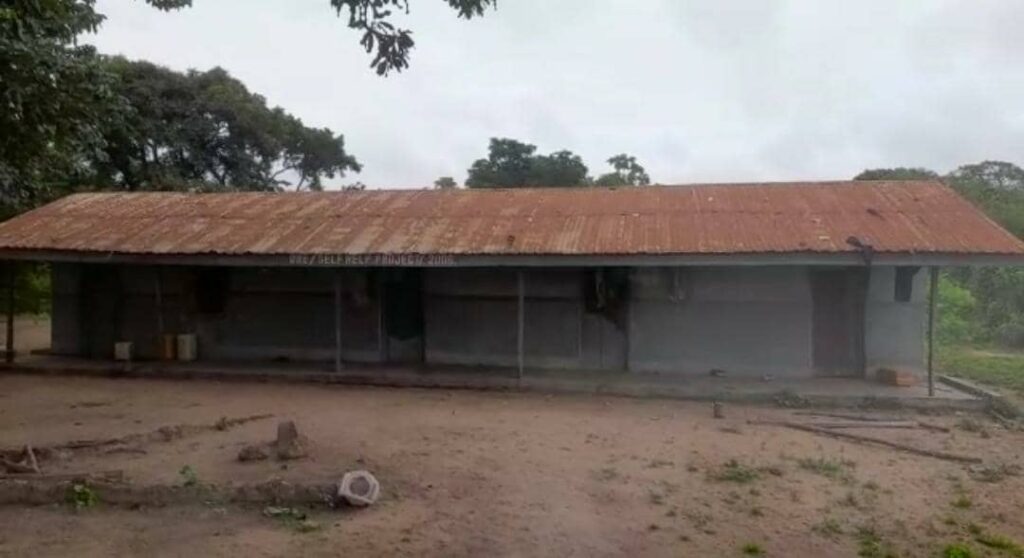
THE GIRL-CHILD EDUCATION PROBLEM
Around the world, 129 million girls are out of school: 32 million of primary school age, 30 million of junior secondary school age, and 67 million of senior secondary school age.
Girls in countries affected by conflicts are more than twice as likely to be out of school than girls living in peaceful countries, according to the United Nations International Children’s Emergency Fund (UNICEF).
Only 49 percent of countries have achieved gender parity in primary education. At the secondary level, the gap widens: 42 percent of countries have achieved gender parity in juniro secondary education, and 24 percent in seniro secondary education.
The reasons are many. Barriers to girls’ education – like poverty, child marriage and gender-based violence – vary among countries and communities. Poor families often favour boys when investing in education.
In some places, schools do not meet the safety, hygiene or sanitation needs of girls. In others, teaching practices are not gender-responsive and result in gender gaps in learning and skills development.
In 2021, Dorcas Peter, a lecturer in the mass communication department of the University of Maiduguri, Borno State, opined that “Girl-child education in Nigeria has many challenges, including gender discrimination, cultural and religious limitations, poverty, and illiteracy, among others.
“Education is a basic human right, and has been recognised as such since the 1948 adoption of the Universal Declaration of Human Rights,” she said.
Peter added that “to ensure equal access to education, the national policy on education states that access to education is a right for all Nigerian children regardless of gender, religion and disability.
“Education, especially, the girl-child education is becoming a major issue of discourse in academic and political spheres in Nigeria. Nollywood producers, radio presenters, professors, mechanics, drivers, politicians are always bringing up the issue to the public domain. Will there ever be a day in Nigeria when the girl child will be as privileged as the boy child with regards to the freedom to pursue their academic aspirations?” She said.
“Female children are confined to domestic chores. She is considered to be only fit in at the kitchen and the house, and she is not schooled because that is her role – housekeeping. This orientation makes her not to realise her full potential. Cultural misconception is a tool that has been a hindrance to a lot of girls getting education.
“Illiteracy is another major challenge of girl-child education. There is poor enlightenment about the benefits of educating a girl child, and so many illiterate parents see no reason a girl child has to go to school. Some of their reasons are that if they educate her, she will get married, and there is no benefit for her being educated.”
WHAT THE STATE GOVERNMENT IS DOING
In December 2021, the Oyo State Government passed a N294,704,585,356.94 budget for the year 2022, N54.1 billion of which was allocated to education.
Presenting the budget in September 2021, Seyi Makinde, the state governor, said, “We have worked hard to ensure that infrastructural development is not restricted to just one zone of the state. In education, we have continued to make investments at all levels. At the primary level, we completed 26 model schools across all zones in Oyo State, built 57 classrooms, installed boreholes and improved the sanitary condition of existing schools through the construction of toilets.
“We have also continued to improve the quality of education in Oyo State. We not only recruited teachers as reported, but we have also trained them on best practices. More recently, we completed the recruitment of 692 education officers in the state.”
In March 2022, the state government inaugurated an environmental and social safeguard team to ensure that out-of-school children captured and re-enrolled in the Better Education Service Delivery for All (BESDA) programme are taught in a child-friendly environment without any form of threat.
Earlier, in December 2021, the State Universal Basic Education Board (SUBEB) claimed it had returned 54,000 out-of-school-children to the classroom in two years.
Data made available on the Federal Ministry of Education’s open source platform showed that in 2017-18, 1,235,676 children were enrolled for basic education across the state’s over 2,000 public primary schools.
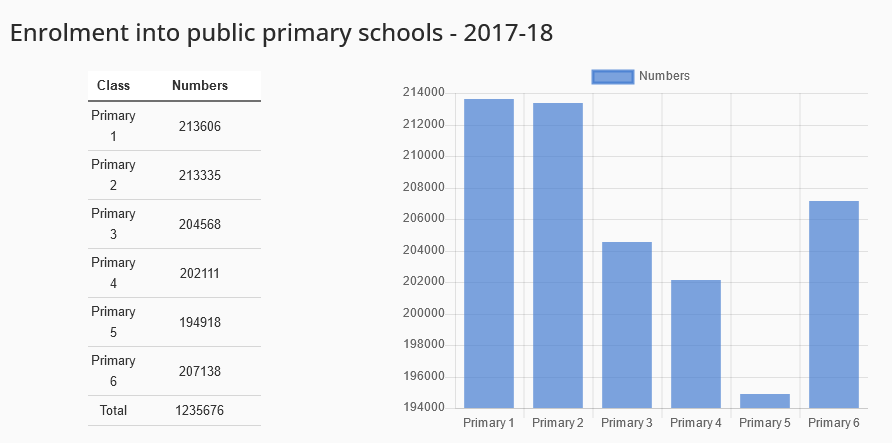
GOVERNMENT REACTS TO FIJ’s FINDINGS
FIJ contacted Olugbenga Abegunde, Local Government Inspector (LIE) for Education in Atisbo LGA, for comments on the findings.
He said, “They go to school, but there’s a problem with their enrollment. The Fulani migrate from one place to another, and when you visit a school today with 50 pupils, you check next month, and it is a different story.
“The teachers are qualified. The state cannot employ under-qualified teachers to teach in schools.”
When FIJ asked why the pupils were unable to communicate properly in English, he denied this claim, saying, “They usually attend all competitions and they don’t perform poorly.”
When FIJ showed him the UBE building, imam’s sermon and interviews with some of the residents, he promised to probe the situation.
After speaking with Abegunde, FIJ contacted the LIE for Kajola LGA, who identified himself simply as Mr Akinlabi.
Akinlabi quizzed our reporter and asked if FIJ obtained permission from the ministry of education to make findings. He said, “Who gave you permission? Did you ask for permission from the ministry of education?”
Afterwards, he asked that our reporter send the findings to him via WhatsApp. He then called our reporter and said there was nothing he could do about it until the state ministry of education gave him instructions.
FIJ also sent a mail to the state ministry of education, but as of press time, it was yet to be responded to.
Subscribe
Be the first to receive special investigative reports and features in your inbox.


